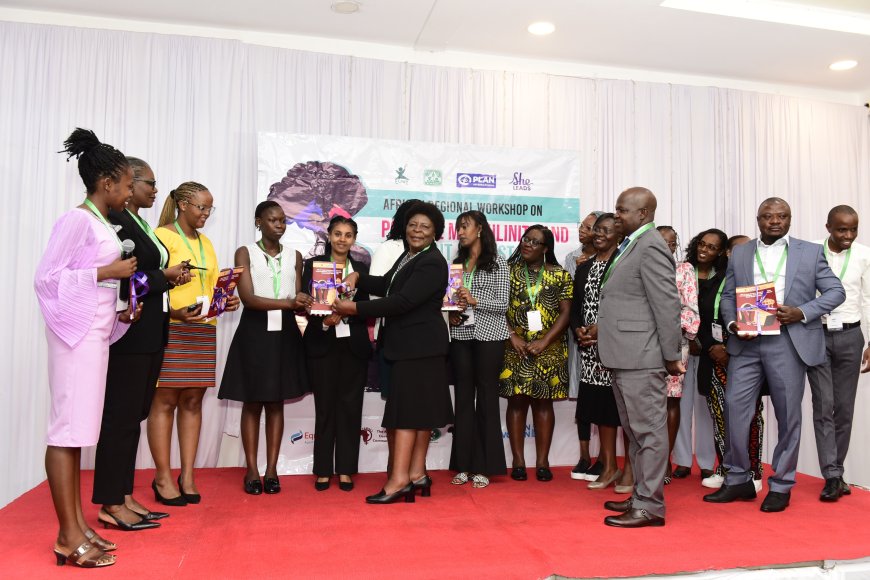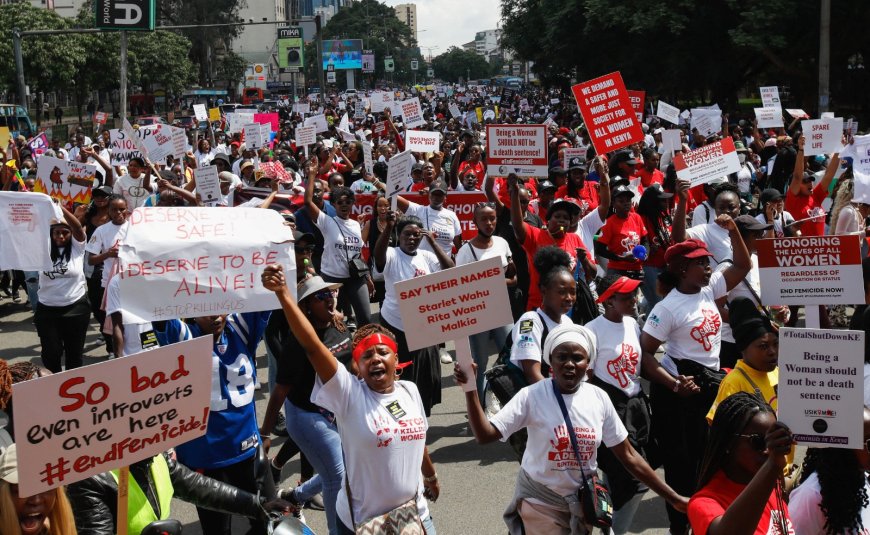UN Urges Kenyan Men To Reject Toxic Masculinity; Explains Why
Women leaders emphasised that it is not enough. They’re calling on men to actively challenge outdated patriarchal norms

The United Nations (UN) Women Kenya is urging Kenyan men to adopt positive masculinity and reject toxic behaviours to help tackle gender-based violence (GBV).
While they acknowledged progress in laws aimed at fighting GBV, women leaders emphasised that it is not enough. They’re calling on men to actively challenge outdated patriarchal norms—like the idea that men should always be in control and women should stay submissive—which fuel abuse and inequality.
“Positive masculinity is a powerful tool for gender justice—it asks men to reject harmful norms, embrace empathy, respect, and partnership. It encourages men to be allies and build healthier relationships," stated Antonia N’gabala Sodonon, the Representative for UN Women in Kenya, on Tuesday, April 22.
UN Women added that despite legislative efforts, deeply rooted patriarchal norms and unequal power structures continue to perpetuate violence, discrimination, and systemic gender inequalities.

Attendees at a Positive Masculinity Regional Workshop on April 22, 2025. /UN WOMEN
The organisation further noted that GBV continues to manifest in many forms, including domestic violence, sexual harassment, and economic disempowerment, limiting the full participation of women and girls in society.
The women leaders pointed out that some of the harmful patriarchal beliefs still entrenched in society include the expectation that men should be dominant while women remain submissive—an idea that fuels dangerous power imbalances and violence.
They also highlighted other toxic norms like women’s financial dependence on men, cultural practices such as female genital mutilation (FGM), child marriages, and even disturbing cases where some communities still justify beating women as a form of “discipline.”
According to UN Women, these beliefs and practices—often upheld by men—are key drivers behind the rising cases of gender-based violence in Kenya.
Now, UN Women is urging men and boys to break away from the toxic mindset that links masculinity with dominance, aggression, and control. Instead, they’re pushing for a version of masculinity that centres on empathy, respect, accountability, and equality—what they’re calling positive masculinity.
What Is Positive Masculinity?
Positive masculinity is all about embracing the good stuff that comes with being a man—strength, leadership, protection, resilience—but using it in ways that uplift, not dominate. It is about emotional intelligence, respect, vulnerability, and accountability.
Positive masculinity pushes men to be role models, to take care of others, to speak up for what's right, and to support people regardless of gender. It’s strength without aggression, confidence without arrogance, and leadership without control. It's the kind of masculinity that makes you feel safe, supported, and inspired.
How Does It Compare to Toxic Masculinity?
Toxic masculinity is the warped version of manhood that tells men and boys that they have to be dominant, emotionless, aggressive, and always in control. It teaches boys that crying is weakness, that empathy is "unmanly," and that power comes from intimidation or violence.
Toxic masculinity thrives on insecurity—it is fragile, constantly trying to prove something, and it often hurts not only women and marginalised groups, but also the men trapped in it. It leads to cycles of emotional repression, mental health issues, and broken relationships.
In short, positive masculinity builds up, and toxic masculinity breaks down. One is rooted in growth and connection; the other is driven by fear and control. It’s not about rejecting masculinity—it’s about redefining it in a way that’s healthy and human.
From Toxic to Positive Masculinity
Transitioning from toxic masculinity to positive masculinity starts with unlearning—and that takes real self-awareness. It means taking a step back and asking, “Why do I act this way?” or “Where did I learn that showing emotions is weak?”
A lot of toxic traits are picked up from culture, media, or family, so the first move is recognising those patterns. Once you're aware, you can start breaking the cycle. That might look like calling out your defensiveness, owning up to mistakes, or just letting yourself feel something other than anger or pride.
Next, it’s about replacing those old habits with new, healthier ones. Instead of suppressing emotions, practice expressing them in a real way. Talk to your people. Journal. Go to therapy if you can. Learn to apologise without excuses. Start seeing vulnerability not as a flaw, but as courage.
Positive masculinity is grounded in emotional maturity—it’s about leading with empathy, not ego. And you don’t have to be perfect at it. It’s a lifelong process, not a checklist.
Also, look at your relationships. Are you listening to others, especially women or non-binary folks? Are you uplifting or dominating? Surround yourself with people who hold you accountable and model the kind of masculinity you want to embody.
Follow creators, thinkers, or leaders who promote healthy masculinity. Let their actions rewire what you associate with being a man. The shift is internal, but the impact? That spreads out into everything—friendships, romantic relationships, work, even how the next generation sees manhood.
Working alongside the Kenyan government, youth advocates, and gender experts, UN Women has agreed that the Regional Forum on Positive Masculinity and the Fight Against GBV will play a key role in guiding the ratification and rollout of the African Union's Convention on Ending Violence Against Women and Girls (EVAWG), with a focus on promoting positive masculinity.
To push this new mindset forward, UN Women, the State Department for Gender and Affirmative Action, and other partners in the Gender and Equality and Women’s Empowerment (GEWE) space have developed the first draft of Kenya’s National Male Engagement and Inclusion Strategy.







